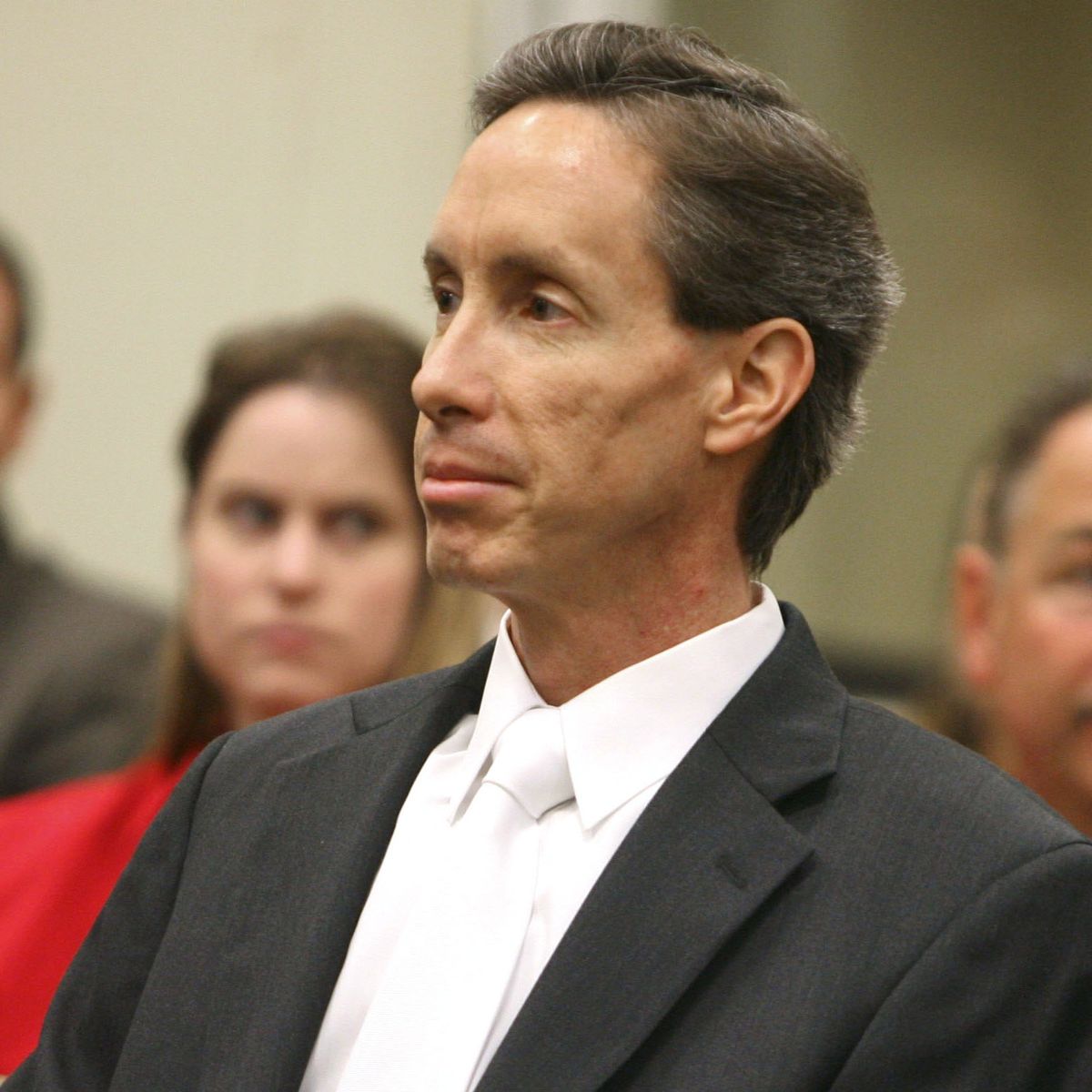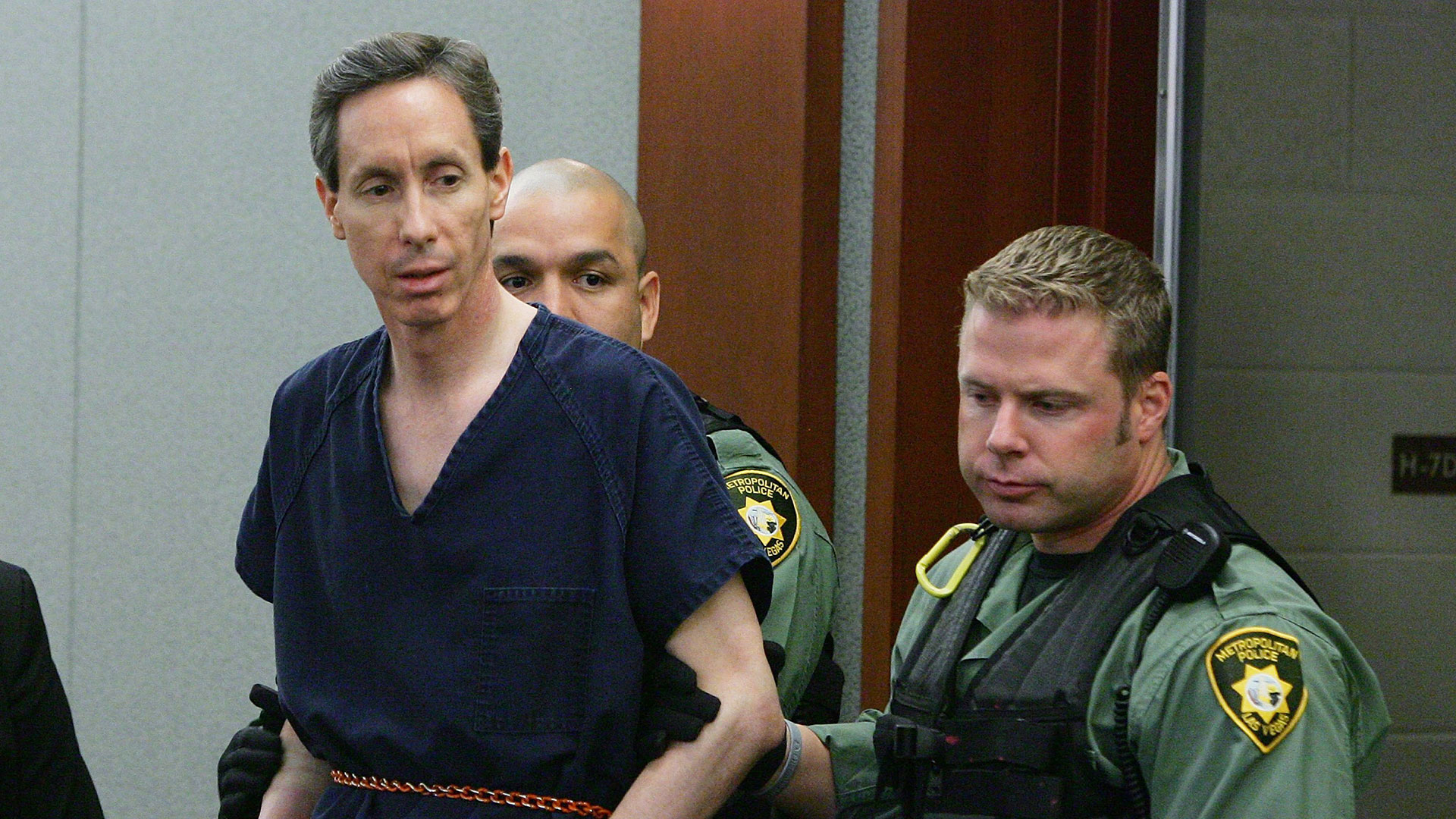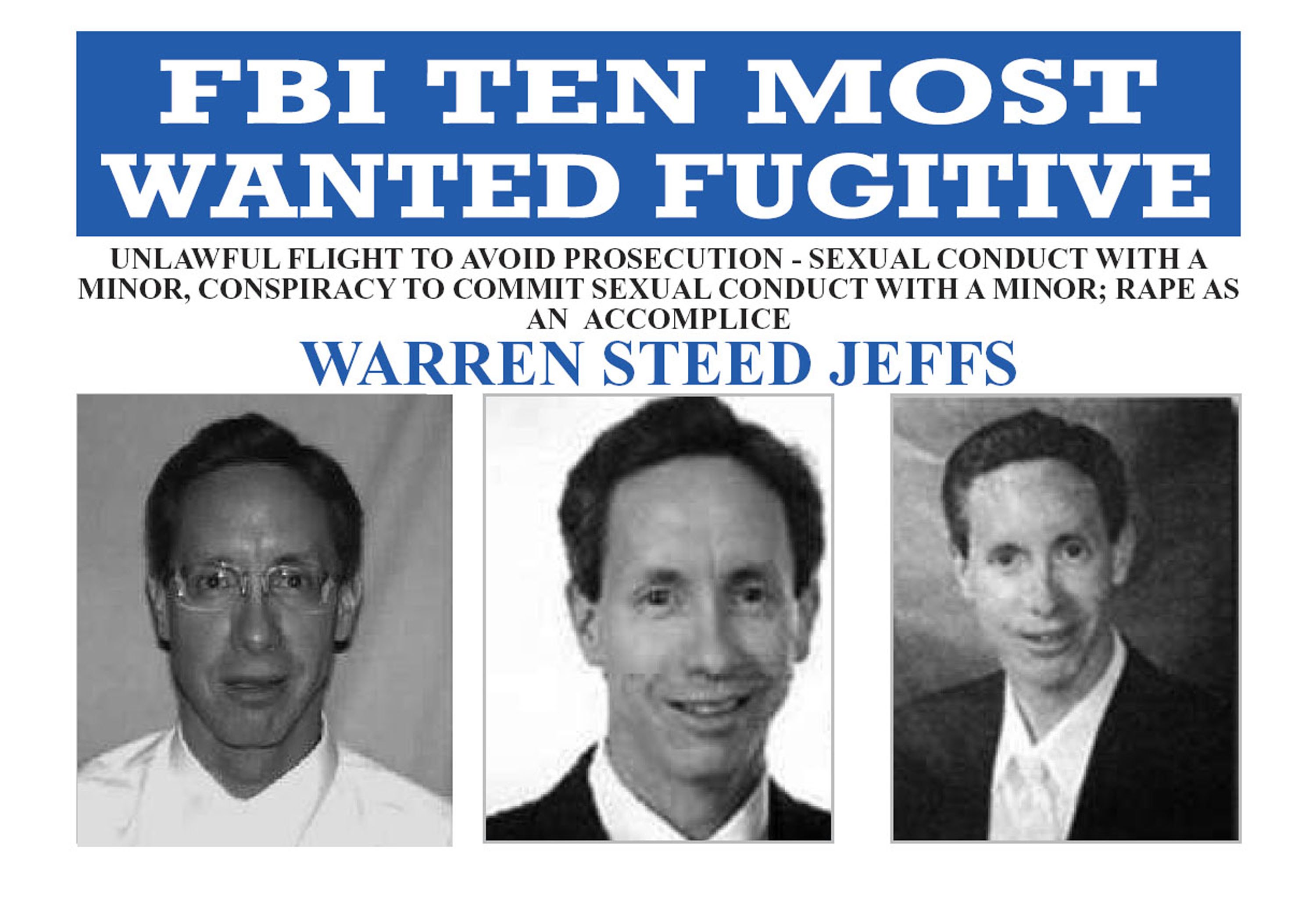Warren Jeffs: The Controversial Leader And His Impact On The Fundamentalist Church
Warren Jeffs is a name that evokes strong reactions, whether you’re familiar with his controversial leadership or just hearing about him for the first time. The man behind the Fundamentalist Church of Jesus Christ of Latter-Day Saints (FLDS) has been at the center of numerous legal battles, accusations, and media scrutiny. His story is a mix of religion, power, and controversy that has captivated the world. So, buckle up, because we’re diving deep into the life, leadership, and legacy of Warren Jeffs.
Jeffs became the leader of the FLDS in 2002, taking over from his father, Rulon Jeffs. Since then, his name has become synonymous with polygamy, child brides, and authoritarian control. But who exactly is Warren Jeffs? What drives him, and how did he rise to such prominence in a sect that many find baffling? Let’s explore the man behind the headlines.
This article aims to shed light on Warren Jeffs’ life, the FLDS church, and the controversies surrounding him. We’ll also touch on the legal consequences he faced and the lasting impact of his leadership. If you’re curious about the intersection of religion, power, and controversy, this is the place to be.
- Dayz Hacks Unlocking The Secrets Of Survival In A Postapocalyptic World
- Omari Hardwick Siblings Ages A Deep Dive Into Family Ties
Table of Contents
- Biography of Warren Jeffs
- Early Life and Family Background
- Rise to Power Within the FLDS
- Leadership Style and Beliefs
- The Controversy Around Polygamy
- Legal Battles and Arrests
- Impact on the FLDS Church
- Criticism and Accusations
- Legacy and Current Status
- Conclusion and Final Thoughts
Biography of Warren Jeffs
Warren Steed Jeffs was born on December 8, 1955, in Salt Lake City, Utah. He grew up in a family deeply rooted in the FLDS church, with his father, Rulon Jeffs, serving as the prophet and leader of the sect. Warren’s early life was shaped by the strict religious doctrines of the FLDS, which emphasized polygamy and complete obedience to church leaders.
Family and Early Life
Warren Jeffs was the second-youngest of 12 children born to Rulon and his first wife, Afton Barlow. His upbringing was heavily influenced by the teachings of the FLDS church, where he was trained to become a devout follower. Despite his father’s prominent role in the church, Warren initially pursued a career in education, working as a teacher before fully committing to church leadership.
| Full Name | Warren Steed Jeffs |
|---|---|
| Date of Birth | December 8, 1955 |
| Place of Birth | Salt Lake City, Utah |
| Family Background | Son of Rulon Jeffs, former leader of the FLDS |
| Occupation | Prophet and leader of the FLDS church |
Early Life and Family Background
Warren Jeffs’ early years were marked by a strict adherence to FLDS teachings. Growing up in a polygamous family, he witnessed firsthand the dynamics of a sect that many outsiders found puzzling. His father, Rulon, was a charismatic leader who instilled in his children the importance of loyalty to the church. Warren’s education and early career as a teacher provided him with a unique perspective, allowing him to connect with church members on a personal level.
- Knight Melendez The Rising Star Redefining Entertainment
- Lisa Niemi And Albert Deprisco A Captivating Story Of Love Loss And Resilience
Education and Career
Before becoming the leader of the FLDS, Warren worked as a teacher in Colorado City, Arizona, and Hildale, Utah—communities heavily influenced by the FLDS church. His experience in education gave him insight into the lives of church members, particularly the younger generation. This background would later prove valuable as he navigated the complexities of leading a controversial religious sect.
Rise to Power Within the FLDS
Warren Jeffs became the leader of the FLDS in 2002, following the death of his father, Rulon Jeffs. His ascension to power was not without controversy, as some church members questioned his suitability for the role. However, Warren quickly established himself as a strict and authoritarian leader, implementing policies that solidified his control over the sect.
Key Changes Under Warren Jeffs
- Increased emphasis on polygamy and arranged marriages
- Stricter enforcement of church doctrines
- Expansion of FLDS influence in Colorado City and Hildale
Leadership Style and Beliefs
Warren Jeffs’ leadership style has been described as authoritarian and uncompromising. He demanded absolute loyalty from church members and used fear as a tool to maintain control. His teachings emphasized the importance of obedience to church leaders and the divine authority of the prophet. Under his leadership, the FLDS church became increasingly isolated from mainstream society.
Beliefs and Doctrines
Jeffs’ beliefs centered on the continuation of polygamy, which he viewed as a divine commandment. He also promoted the idea of “spiritual warfare,” where church members were encouraged to see themselves as soldiers in a battle against the forces of evil. This mindset contributed to the sect’s growing separation from the outside world.
The Controversy Around Polygamy
One of the most controversial aspects of Warren Jeffs’ leadership is his promotion of polygamy. The FLDS church practices a form of polygamy that includes child brides, with girls as young as 12 or 13 being married off to older men. This practice has drawn widespread criticism and legal action from authorities. Jeffs defended these practices as part of the church’s religious beliefs, but many view them as a violation of human rights.
Statistics on Polygamy in the FLDS
- Approximately 10,000 people belong to the FLDS church
- Most adult males practice polygamy
- Child brides are a common practice within the sect
Legal Battles and Arrests
Warren Jeffs’ leadership has been marred by numerous legal battles. In 2005, he was placed on the FBI’s Ten Most Wanted Fugitives list, facing charges of sexual assault and underage marriage. He was eventually arrested in 2006 and has been in and out of court ever since. Jeffs’ legal troubles have brought significant attention to the FLDS church and its practices.
Notable Legal Cases
- 2007: Convicted of sexual assault in Texas
- 2011: Sentenced to life in prison plus 20 years
- 2017: Lost appeal, sentence upheld
Impact on the FLDS Church
Warren Jeffs’ leadership has had a profound impact on the FLDS church. While he strengthened the sect’s internal cohesion, his controversial practices have led to increased scrutiny from law enforcement and the media. The church’s isolation from mainstream society has deepened, and many members have left the sect in recent years.
Changes in the FLDS Community
- Increased focus on self-sufficiency and isolation
- Decline in membership due to legal pressures
- Greater awareness of child marriage practices
Criticism and Accusations
Warren Jeffs has faced numerous criticisms and accusations throughout his leadership. Critics argue that his practices violate human rights and exploit vulnerable individuals, particularly children. Many former FLDS members have spoken out against his authoritarian rule and the oppressive nature of the sect.
Voices of Dissent
Former FLDS members have shared their stories of escaping the sect and rebuilding their lives outside its influence. These narratives provide valuable insights into the challenges faced by those who leave the church and highlight the need for support systems to help them transition into mainstream society.
Legacy and Current Status
Warren Jeffs remains a polarizing figure, both within and outside the FLDS church. While some church members view him as a prophet and spiritual leader, others see him as a manipulative and abusive authority figure. His current status as a convicted criminal has not diminished his influence over the sect, though his leadership has been challenged by internal dissent.
Looking Forward
The future of the FLDS church is uncertain, as younger generations grapple with the legacy of Warren Jeffs’ leadership. Will the sect continue to isolate itself from the outside world, or will it seek to engage with mainstream society? Only time will tell, but one thing is certain: Warren Jeffs’ impact on the FLDS church will be felt for years to come.
Conclusion and Final Thoughts
Warren Jeffs’ story is one of power, controversy, and resilience. His leadership of the FLDS church has sparked intense debates about religion, human rights, and the role of authority figures in shaping communities. While his practices have drawn widespread criticism, they have also shed light on the complexities of religious sects and the challenges they pose to society.
As we reflect on Warren Jeffs’ legacy, it’s important to consider the broader implications of his actions. How do we balance religious freedom with the protection of vulnerable individuals? What role should law enforcement play in addressing the practices of sects like the FLDS? These questions remain relevant as we navigate the intersection of faith and society.
So, what do you think? Do you have thoughts on Warren Jeffs’ leadership and its impact on the FLDS church? Leave a comment below and let’s continue the conversation. And don’t forget to share this article with your friends and family who might find it interesting. Together, we can explore the complex world of religion and its influence on our lives.
Article Recommendations
- Gina Torres Is She Laurence Fishburnes Daughter Unveiling The Truth
- Claudia Valdez Son Unveiling The Life And Journey Of A Rising Star



Detail Author:
- Name : Jacques Kertzmann
- Username : emilio.huel
- Email : rhea37@larson.com
- Birthdate : 1994-01-14
- Address : 832 Keeling Streets East Jaquelinborough, MN 29438
- Phone : (848) 636-3255
- Company : Kuhlman-Bauch
- Job : Interior Designer
- Bio : Ipsa veritatis eaque repudiandae et ut. Sapiente qui dolor temporibus quis. Sed magni dolores voluptatem animi. Enim quod quasi omnis.
Socials
facebook:
- url : https://facebook.com/yundta
- username : yundta
- bio : Doloremque nemo consequatur dolores suscipit.
- followers : 6943
- following : 2055
linkedin:
- url : https://linkedin.com/in/yundt1984
- username : yundt1984
- bio : Iure ad consequatur impedit.
- followers : 4785
- following : 1208
tiktok:
- url : https://tiktok.com/@austenyundt
- username : austenyundt
- bio : Ut atque a qui. Et amet ut id consequuntur distinctio.
- followers : 6738
- following : 1572
twitter:
- url : https://twitter.com/austen_real
- username : austen_real
- bio : Expedita a laudantium et eveniet. Rerum nihil cumque dolores aliquam magni.
- followers : 1783
- following : 2992
instagram:
- url : https://instagram.com/austen_yundt
- username : austen_yundt
- bio : Reprehenderit voluptas sed ipsam. Sed cum ullam quis natus iste. Unde minima aut qui et deserunt.
- followers : 5488
- following : 2087